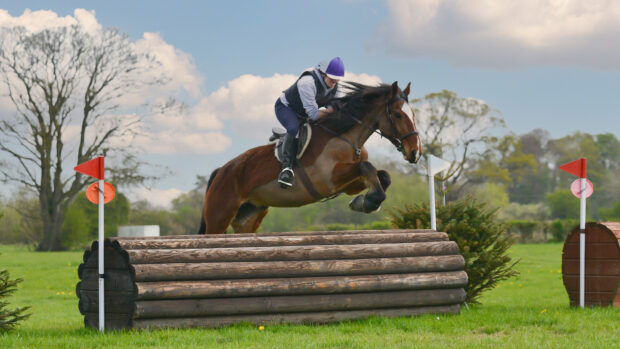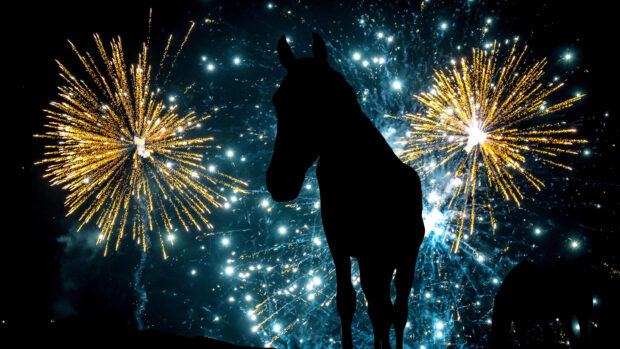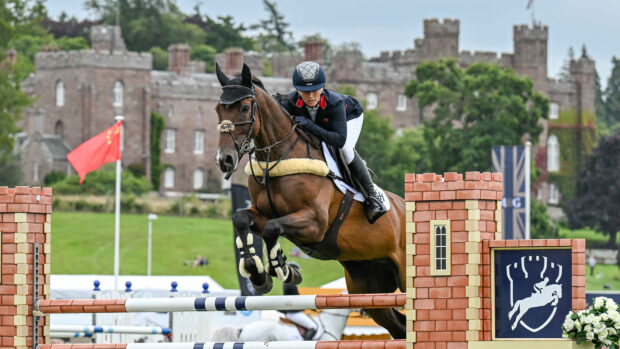Scottish Parliament has passed legislation imposing new restrictions on hunting, in a move branded “unjustified and unnecessary” by the Scottish Countryside Alliance.
Hunting in Scotland follows different laws to England and Wales. Previously, more than two hounds were still allowed to be used for flushing foxes to guns. But on Tuesday (24 January) members of the Scottish Parliament (MSPs) passed new legislation to change this and to put a pre-emptive ban on trail hunting.
The new bill puts a two-dog limit on flushing foxes to guns, with exceptions to be granted in limited circumstances under a new NatureScot licensing scheme. The ban on trail-hunting is defined as “the activity in which a dog is directed to find and follow an animal-based scent which has been laid for that purpose”.
The legislation sets out the blueprint for the licensing scheme. What this will mean in practical terms for hunts and supporters is expected to be made clear in the near future.
Speaking after the bill was passed, Scottish Countryside Alliance director Jake Swindells slammed the new legislation.
“This process has taken over seven years and is both unjustified and unnecessary. The Scottish Government’s own review found that restrictions on the use of packs of dogs could compromise fox control and put both farmer’s livelihoods and threatened wildlife at risk,” he said.
“Whilst it is frustrating that so much time and resource has been wasted on this bill, the licensing scheme is, at least, an explicit acceptance by the Scottish Government that the use of packs of dogs in wildlife management is effective and necessary.
“It will now be down to NatureScot, the licensing body, to ensure that farmers and wildlife managers are able to access the best options for fox control in all circumstances.”
Environment minister Mairi McAllan said she believed the new legislation “has struck the right balance”.
“[This is] between ensuring Scotland pursues the highest possible animal welfare standards, while recognising the need for farmers, land managers and environmental organisations to undertake legitimate wildlife management,” she said.
Views in Scottish Parliament were divided.
MSP Rachael Hamilton criticised the framing of the debate as “often presented as a narrow issue where we can either be pro or against animal welfare”, overlooking practicalities and realities.
“I am afraid that that argument is flawed and does not help anybody. It does not help animal welfare, it does not serve our farmers on the front line and it does not help biodiversity or our environment,” she said.
“If this was a straightforward choice between protecting animal welfare or not, we would be 100% behind protecting animal welfare, but it is not, and we do this parliament a disservice by pretending that it is.
“The debate is so often framed around hunting for sport, but what we are discussing here today is far removed from that. This bill should really be about the balance between animal welfare and biodiversity. If there is no hunting with dogs, predators will be left to attack other animals. Those predators, left unchecked, will attack livestock such as lambs and sheep, or ground-nesting birds such as the curlew, the capercaillie and other vulnerable species. This is not a simple bill that protects animal welfare; it is a bill that protects some animals’ welfare at the expense of others.”
She added the legislation “will not help animal welfare” and fears it “will have a negative impact on biodiversity, our natural environment and those who protect, support and look after it”.
MSP Edward Mountain added he was “deeply disappointed” by the final drafting of the bill.
“I do not support animal cruelty, but the bill has seriously limited our ability to manage wildlife, thus putting at risk the protection and enhancement of our native flora and fauna,” he said.
“I believe that the parliament, in its wish to ban mounted hunts, has shown the true divide between countryside and urban voters. Here we are spending hours discussing hunting with dogs while the national health service is under pressure, schoolteachers are on strike and our ferry service crumbles. This debate has shown how tone-deaf the Government is to the concerns of the countryside.
“I believe that the bill is one fuelled by ideology, not practicality.
I cannot and will not support the bill. I am afraid that it will lead to a further disconnect between our countryside and the urban areas – a disconnect that I believe the Government will ultimately answer for.”
Others criticised the bill for not going further.
MSP Colin Smyth said it was a chance to “scrap loopholes”, but it “does not do that”.
“It will not close all of the loopholes that exist and it will not end the use of packs of dogs; it merely licenses their use,” he said.
He added that ending hunting with packs was “unfinished business” when the bill was proposed, and that it “remains unfinished business”.
You might also be interested in:

Subscribe to Horse & Hound magazine today – and enjoy unlimited website access all year round

‘Illogical’: plan to ban trail-hunting put forward in Scottish hunting bill
Horse & Hound magazine, out every Thursday, is packed with all the latest news and reports, as well as interviews, specials, nostalgia, vet and training advice. Find how you can enjoy the magazine delivered to your door every week, plus options to upgrade your subscription to access our online service that brings you breaking news and reports as well as other benefits.



